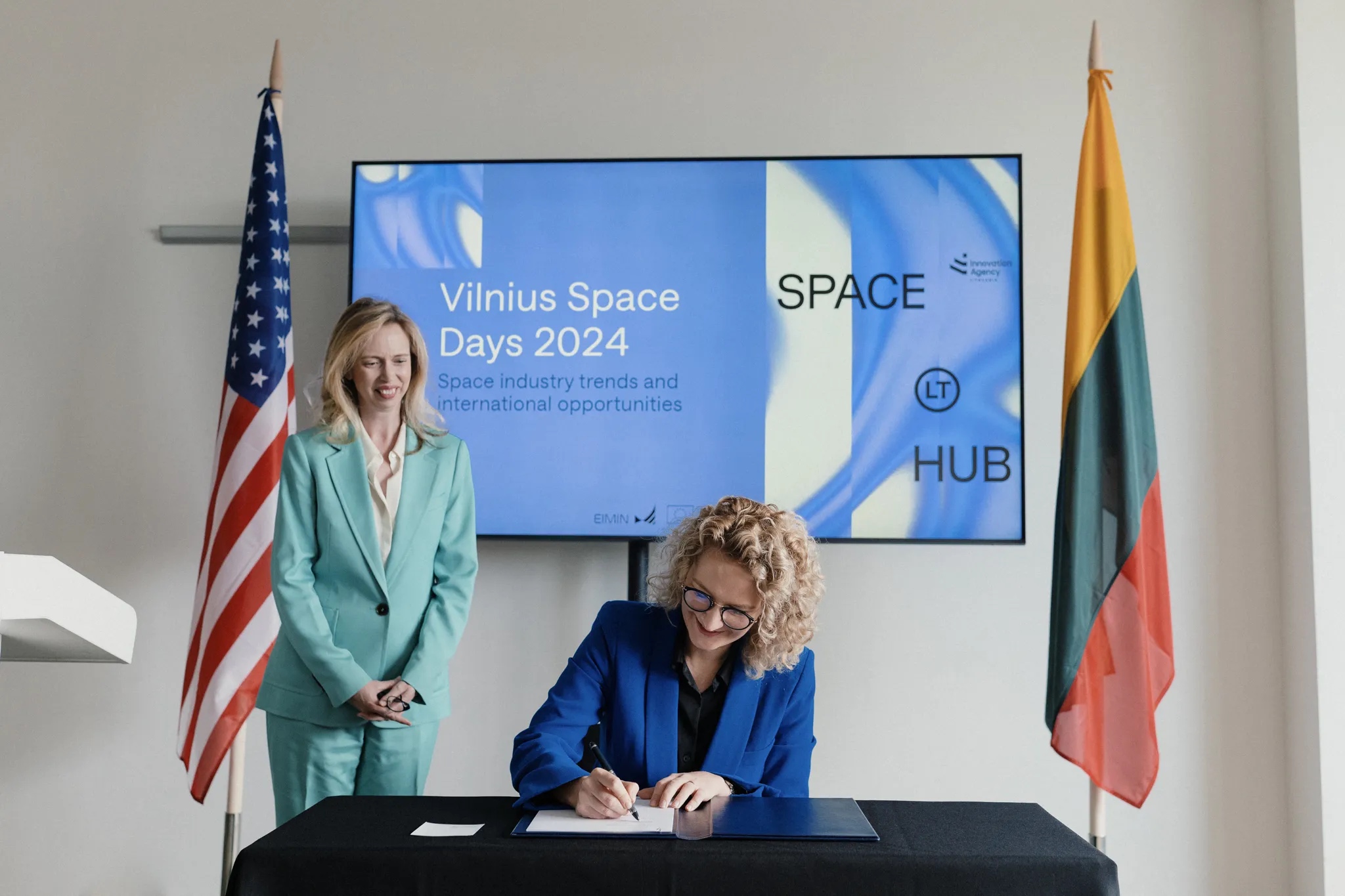Products You May Like
WASHINGTON — Lithuania has become the 40th nation to sign the Artemis Accords outlining best practices for responsible space exploration.
During a May 15 ceremony in Vilnius, Aušrinė Armonaitė, Lithuania’s minister of economy and innovation, signed the accords in the presence of Kara C. McDonald, U.S. ambassador to the country.
“The Lithuanian space sector has been growing steadily, with our innovative companies working in this field making significant strides,” Armonaitė said in a statement. “The Artemis Accords mark a new chapter and chart a course for future space exploration, underscoring our commitment to a responsible, sustainable and cooperative presence in space.”
Lithuania is the seventh nation to sign the Accords so far this year, six of which are in Europe. Forty countries have signed the Artemis Accords since the document was unveiled in 2020.
“In just four years, a remarkable 40 countries have signed the Artemis Accords. Together, as a global coalition, we will explore the stars openly, responsibly and in peace,” NASA Administrator Bill Nelson said in a statement.
The Accords outline best practices in a range of topics related to space exploration, building upon the Outer Space Treaty and other international agreements. The Accords cover issues ranging from sharing of scientific data to utilization of space resources and deconfliction of space activities.
Officials with NASA and the State Department, which jointly administer the Artemis Accords, said at a recent event that they see growing interest in signing the Accords.
“As the number keeps growing, there’s more and more interest,” said Valda Vikmanis-Keller, director of the Office of Space Affairs at the State Department, at the Meridian Space Diplomacy Forum April 30. “Countries are looking around and realizing that their neighbors, other international partners, have signed, and I think there’s a growing curiosity.”
The level of effort to encourage countries to sign the Accords has varied widely. “One partner mailed it in” without any discussions, said Karen Feldstein, NASA associate administrator for international and interagency relations, on the panel. “For others, it’s a very sustained discussion.”
The fact that the Accords are non-binding, unlike a treaty, makes it easier for countries to sign, she added. “Having the Accords being non-binding lowers the barrier to entry,” she said, noting the widely varying levels of expertise among countries that have signed on.
“The Accords are the beginning of a discussion,” said Vikmanis-Keller. “They bring together people in these discussions. They are free and frank and open in a unique way that perhaps other fora don’t allow.”
Those discussions include workshops, such as one this month in Montreal, as well as meetings of heads of agencies held during the International Astronautical Congress. Feldstein said past discussions led to the development of a set of information parameters that should be shared among nations about lunar missions. NASA used those guidelines to share information on the first two Commercial Lunar Payload Services lunar lander missions launched earlier this year.
The Artemis Accords are open to all countries, including geopolitical rivals like China and Russia, said Vikmanis-Keller, although she added she was not aware of any specific outreach to those countries about signing the Accords. There is also nothing to prevent a country from signing the Artemis Accords and also joining the China-led International Lunar Research Station (ILRS) effort with its own set of principles.
Both Feldstein and Vikmanis-Keller said on the panel that they expect more countries to sign the Artemis Accords in the coming months. “The more the better, but it’s never been and it’s not about chasing a number,” Vikmanis-Keller said, but offered a personal, unofficial prediction of 57 signatories by the end of the year.
“We have a lot of energy in the system for new signatories,” said Feldstein. “It’s coming from the idea that this is less about the political commitment than it is about being able to participate in this very unique community that is coming together outside some of the formal mechanisms.”
A May 15 joint statement after a meeting of the U.S.-Portugal Standing Bilateral Commission referenced another potential new signatory: “The U.S. and Portuguese governments intend to begin discussions for Portugal to sign the Artemis Accords.”
